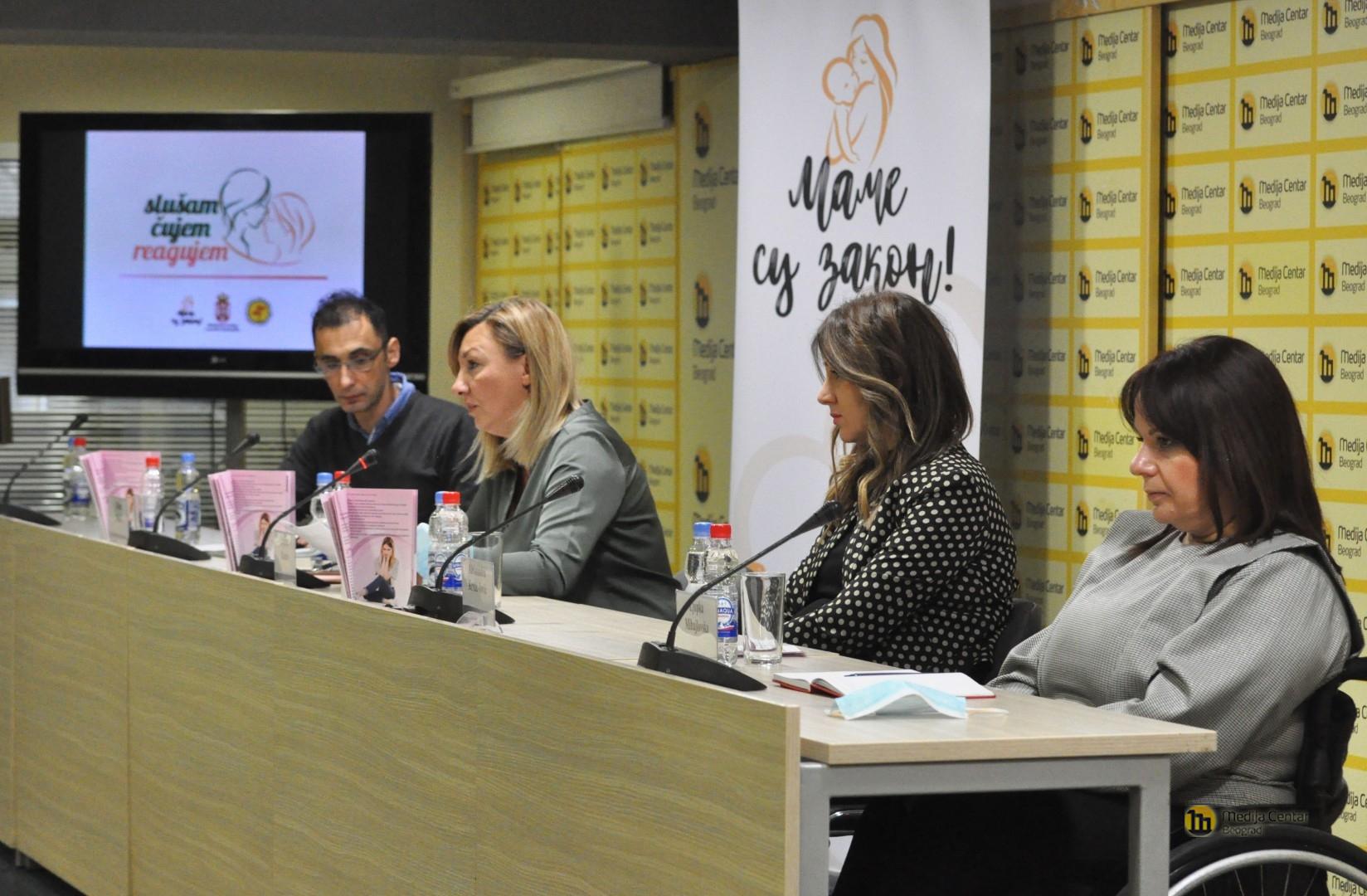Hotline: +381 61 63 84 071
As much as 74 percent of girls victims of violence in Serbia haven’t sought help

As much as 74 percent of girls victims of violence in Serbia haven’t sought help
J. D.danas 14.25
Photo: Medija centar Beograd
As part of the global campaign 16 Days of Activism against Violence against Women, "Moms rule" and "Roads of Education" organized today in the Media Center an open discussion about men’s violence against girls and women.
The immediate reason and basis for the conversation was the recently published research "Recognize violence, say no", which reveals that one in five girls between the ages 13 and 19 experienced sexual violence, while 74 percent of the girls victims of violence have not sought help.
Tatjana Macura from "Moms rule" pointed out that a small percentage of those who spoke about violence turned to their families (11 percent), which is why these two organizations created a brochure "I listen, I hear, I react" which aims to raise the level of trust between the parents and girls.
Reacting to the data from the research that 90 percent of the respondents think that men’s violence against girls and women should be talked about in schools, "Moms rule" and "Roads of education" will in the coming period insist on having the Ministry of Education, educational and other institutions to take concrete steps in that direction.
As it was pointed out at today's gathering in the Media Center, these two organizations will mobilize the public and the media through their activities in order to remove taboos from this topic and initiate a wider social dialogue.
Spaces that stand out as particularly risky and complex for girls victims of violence are schools and online spaces.
Aleksandra Krstić Jović from "Roads of Education", stated that it is important for a child to turn to the parent for help as a first instance, and that it is necessary to empower the parents to trust them.
She reminded that there is a Rulebook on the protocol on actions in cases of discrimination, abuse and neglect, which refers to all actors in the educational process, and defines the levels of violence and conduct.
Ljupka Mihajlovska, director of the Centre for Students with Disabilities and president of the Serbian Alliance for Accessibility, pointed out that it is important for women in partner relations to understand that any form of sexual relation that is not consented to by one of the partners is a certain type of violence.
- Everything that is a risk for girls and women without disabilities, to experience violence and the consequences such violence has on them is a three times higher risk for women with disabilities and other women from vulnerable social groups - Mihajlovska pointed out.
Milan Aleksić from NGO Atina pointed out the misconception that there is no danger from the immediate environment, as shown in the research conducted by "Moms rule" and "Roads of education".
- Considering NGO Atina’s experience throughout the years, data from the research are not surprising. Violence is ubiquitous, the question is whether it is adequately discussed. Over 40 percent of the victims were exposed to some form of digital violence by persons known to them, our research showed - Aleksić pointed out.
The entire event can be found via the following link: https://mc.rs/dogadjaji/otvoreni-razgovor-o-nasilju-nad-devojcicama-i-ze...
The original text can be found via the Danas website: https://www.danas.rs/vesti/drustvo/cak-74-odsto-devojcica-zrtava-nasilja...












 FACEBOOK
FACEBOOK TWITTER
TWITTER YOUTUBE
YOUTUBE